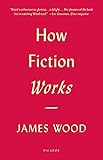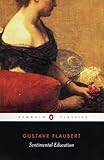
 Jonathan Russell Clark sits at his desk, writing an essay about free indirect discourse. Surrounding him are books by authors who employ the technique with considerable skill: Jane Austen, Gustave Flaubert, James Joyce, Virginia Woolf, Stephen Dixon, and Joshua Ferris. He recalls a time when he did not even know what free indirect discourse was, and a time, later, when he knew the term but viewed it more as a descriptor than a crucial component. He remembers how his relationship to the term evolved over the years: his initial distrust of it, as many of his favorite writers cavalierly disregarded the tactic; his frustration with its limitations: how would he communicate the thoughts of other characters if he couldn’t leave the brain of the protagonist?; his eventual understanding of its importance while reading James Wood’s illuminating (though much debated) book How Fiction Works, in which he refers to it as “close writing”; and then, finally, his acceptance and full embrace of the method. Though he still admired novelists who could successfully avoid using free indirect discourse, he knew he would never break from it himself. It was just too liberating, the way close writing allowed his sentences to spill out of him, effortlessly, like thoughts, rapid and rabid and rampant, just spit out onto the page––it was so easy, or, well, easier, because it’s not as if he’s without problems, creatively speaking, oh he has problems, like how is he supposed to know which thoughts are important and which simply aren’t? and why is he unable to write economically, why are his pieces always longer than they need to be?––but yeah anyway, he now loved close writing because it made writing fun.
Jonathan Russell Clark sits at his desk, writing an essay about free indirect discourse. Surrounding him are books by authors who employ the technique with considerable skill: Jane Austen, Gustave Flaubert, James Joyce, Virginia Woolf, Stephen Dixon, and Joshua Ferris. He recalls a time when he did not even know what free indirect discourse was, and a time, later, when he knew the term but viewed it more as a descriptor than a crucial component. He remembers how his relationship to the term evolved over the years: his initial distrust of it, as many of his favorite writers cavalierly disregarded the tactic; his frustration with its limitations: how would he communicate the thoughts of other characters if he couldn’t leave the brain of the protagonist?; his eventual understanding of its importance while reading James Wood’s illuminating (though much debated) book How Fiction Works, in which he refers to it as “close writing”; and then, finally, his acceptance and full embrace of the method. Though he still admired novelists who could successfully avoid using free indirect discourse, he knew he would never break from it himself. It was just too liberating, the way close writing allowed his sentences to spill out of him, effortlessly, like thoughts, rapid and rabid and rampant, just spit out onto the page––it was so easy, or, well, easier, because it’s not as if he’s without problems, creatively speaking, oh he has problems, like how is he supposed to know which thoughts are important and which simply aren’t? and why is he unable to write economically, why are his pieces always longer than they need to be?––but yeah anyway, he now loved close writing because it made writing fun.
To be clear: close writing is not vital to all fiction. In fact, it doesn’t even speak to most fiction. For instance, first-person narrations cannot use free indirect discourse. When a character is speaking directly to a reader, the aim of close writing is already happening; no technique required. Also, novels and stories that feature an omniscient narrator are similarly excluded––all-knowing narrators simply tell us information. The skill required to pull off such a voice is its own subject. No, close writing only relates to third-person limited narrations, and, even more specifically, ones with an active interest in the inner lives of the characters. Not all fiction cares about that.
Here’s how James Wood explains close writing:
So-called omniscience is almost impossible. As soon as someone tells a story about a character, narrative seems to want to bend itself around that character, to take on his or her way of thinking and speaking. A novelist’s omniscience soon enough becomes a kind of secret sharing.
And later:
Note the gain in flexibility. The narrative seems to float away from the novelist and take on the properties of the character, who now seems to “own” the words.
Without being able to articulate it, free indirect discourse appealed to Clark greatly. Novels that used the style effectively gave him a giddy sensation, the prose seeming to not have been written but transcribed from a person’s mind but filtered through the ostensibly distancing third-person point-of-view, and though he didn’t know it, he came to depend on such techniques to let him “settle” into a character. Even more striking, when he read a piece of fiction (especially in a workshop environment) that failed to use close writing and didn’t effectively employ another style, something irked him as his eyes moved over the words. He was made uncomfortable by these stories, but he didn’t know why. What the hell was it?
When he finally learned the term––in a college course, he thinks––he started to understand what it was that had been bothering him. Once he read How Fiction Works, he knew with satisfying finality. Free indirect discourse. Close writing. Thankfully the grey cloud hovering over his frustration had a name. Nameless things give aimless dreams.
 How important is free indirect discourse? In the history of the novel, it’s extremely important. Clark at first didn’t even realize that the technique had to be developed at all, but in fact it was an astonishing feat. According to Michael Schmidt’s monumental and astounding work of scholarship and criticism, The Novel: A Biography (a book so big and important it merits its own essay, which is forthcoming), early iterations of the novel concerned themselves less with verisimilitude than outright deceit. When Daniel Defoe composed Robinson Crusoe (or, to use its full title––no joke––The Life and Strange Surprising Adventures of Robinson Crusoe, of York, Mariner: Who lived Eight and Twenty Years, All Alone in an Uninhabited Island on the Coast of America, near the Mouth of the Great River of Oroonoque; Having Been Cast on Shore by Shipwreck, wherein All the Men Perished but Himself. with an Account of How He Was at Last as Strangely Deliver’d by Pirates), “he believed he had to honor readers’ expectations of a true and edifying story. An untrue story had to seem true.” The nuanced psychology of the characters was irrelevant to the task of moral tutelage. But the method of mimicking eventually morphed into the representation of human thought.
How important is free indirect discourse? In the history of the novel, it’s extremely important. Clark at first didn’t even realize that the technique had to be developed at all, but in fact it was an astonishing feat. According to Michael Schmidt’s monumental and astounding work of scholarship and criticism, The Novel: A Biography (a book so big and important it merits its own essay, which is forthcoming), early iterations of the novel concerned themselves less with verisimilitude than outright deceit. When Daniel Defoe composed Robinson Crusoe (or, to use its full title––no joke––The Life and Strange Surprising Adventures of Robinson Crusoe, of York, Mariner: Who lived Eight and Twenty Years, All Alone in an Uninhabited Island on the Coast of America, near the Mouth of the Great River of Oroonoque; Having Been Cast on Shore by Shipwreck, wherein All the Men Perished but Himself. with an Account of How He Was at Last as Strangely Deliver’d by Pirates), “he believed he had to honor readers’ expectations of a true and edifying story. An untrue story had to seem true.” The nuanced psychology of the characters was irrelevant to the task of moral tutelage. But the method of mimicking eventually morphed into the representation of human thought.

 Generally, the development of close writing into its modern form is attributed to Gustave Flaubert in novels like A Sentimental Education, but the early traces of “inner monologue” are as subtle and elusive as the technique itself. Gabriel García Márquez “detects the original use of ‘interior monologue'” as far back as Lazarillo de Tormes, a picaresque work from 1554. James Wood points out an example in Pope’s mock-epic The Rape of the Lock from 1712. Jane Austen, who died four years before Flaubert was born, occasionally abandoned her lofty point-of-view in order to take the reader into the character’s mind, if only briefly, as in this passage from Pride and Prejudice:
Generally, the development of close writing into its modern form is attributed to Gustave Flaubert in novels like A Sentimental Education, but the early traces of “inner monologue” are as subtle and elusive as the technique itself. Gabriel García Márquez “detects the original use of ‘interior monologue'” as far back as Lazarillo de Tormes, a picaresque work from 1554. James Wood points out an example in Pope’s mock-epic The Rape of the Lock from 1712. Jane Austen, who died four years before Flaubert was born, occasionally abandoned her lofty point-of-view in order to take the reader into the character’s mind, if only briefly, as in this passage from Pride and Prejudice:
Elizabeth felt herself completely taken in. She had fully proposed being engaged by Wickham for those very dances:––and to have Mr. Collins instead!––her liveliness had been never worse timed. There was no help for it however. Mr. Wickham’s happiness and her own was per force delayed a little longer, and Mr. Collins’s proposal accepted with as good a grace as she could. She was not the better pleased with his gallantry, from the idea it suggested of something more.––It now struck her, that she was selected from among her sisters as worthy of being the mistress of Hunsford Parsonage, and of assisting to form a quadrille table at Rosings, in the absence of more eligible visitors.
Austen’s tactics are very subtle––the exclamation point punctuating the shock over Mr. Collins, the italicized she, and the sound of contemplative flow in “There was no help for it however”––but those little moments of language all belong to Elizabeth, not Austen. It is Elizabeth who can’t believe she has Mr. Collins instead; it is Elizabeth who can’t believe that she was selected from among her sisters, and it is Elizabeth who doesn’t think there was any help for it however. A reader may not be able to articulate with precision the, as Wood describes it, “marvelous alchemical transfer” that just took place, but they’ll feel it. They’ll understand Elizabeth a little bit more.
Flaubert took it a bit further. He organized his entire style around close writing. In A Sentimental Education, the prose moves into the protagonist Frédéric’s mind without any explicit hint at the shift. Here is Frédéric’s first seeing Mme Arnoux, the older woman with whom he falls in love with:
Never before had he seen more lustrous dark skin, a more seductive figure, or more delicately shaped fingers than those through which the sunlight gleamed. He stared with amazement at her work-basket, as if it were something extraordinary. What was her name, her place of residence, her life, her past?
Those last questions are Frédéric’s, as if transcribed verbatim from his thoughts. But where did that shift happen? There was no, “He thought…” Instead, the language slips first into the character’s vernacular––the words “lustrous,” “seductive,” and “delicately” are all Frédéric’s––and then into his mind. It’s quite a nifty trick. “Thanks to free indirect style,” James Wood writes, “we see things through the character’s eyes and language but also through the author’s eyes and language. We inhabit omniscience and partiality at once.”
If this all seems very basic to you, consider that there was a time when close writing simply didn’t exist. Additionally, though readers and writers often implicitly understand these ideas, sometimes the act of naming something and recognizing its traits leads to understanding. Like David Foster Wallace’s fish parable, sometimes you have to say: This is water.
 Moreover, once the modernists enter the picture, close writing is taken to new depths: the inner thoughts of characters become just as important––or more important––than the plot. Virginia Woolf and James Joyce went so far as to construct novels that took place in a single day, Mrs. Dalloway and Ulysses, meaning the reader spends most of the narrative inside a mind as it thinks. Joyce loved to catalogue very ordinary thoughts, and through Leopold Bloom he mastered close writing like nobody before him. Here is Bloom just after he is first introduced, as he prepares breakfast for Molly:
Moreover, once the modernists enter the picture, close writing is taken to new depths: the inner thoughts of characters become just as important––or more important––than the plot. Virginia Woolf and James Joyce went so far as to construct novels that took place in a single day, Mrs. Dalloway and Ulysses, meaning the reader spends most of the narrative inside a mind as it thinks. Joyce loved to catalogue very ordinary thoughts, and through Leopold Bloom he mastered close writing like nobody before him. Here is Bloom just after he is first introduced, as he prepares breakfast for Molly:
Another slice of bread and butter: three, four: right. She didn’t like her plate full. Right. He turned from the tray, lifted the kettle off the hob and set it sideways on the fire. It sat there, dull and squat, its spout stuck out. Cup of tea soon. Good. Mouth dry.
Listen to the fragmentary nature of Bloom’s thoughts as they mingle with action. Taking Flaubert’s technique even further, Joyce gives us full access to Bloom’s mind with almost no indication he’s doing so. His thoughts aren’t profound––they’re quotidian, mundane, banal. Clark’s favorite moment comes when Bloom is unable to recall someone’s name:
Stream of life. What was the name of that priestylooking chap was always squinting in when he passed? Weak eyes, woman. Stopped in Citron’s saint Kevin’s parade. Pen something. Pendennis?
Who hasn’t had a similar moment, a name stuck on the tip of the tongue? Then, a full 25 pages later (in the 1922 text, that is), as Bloom assists a blind man across the street, and whose face strikes him “like a fellow going in to be a priest,” it suddenly hits him: “Penrose! That was the chap’s name.” The image of a priest brings to mind the “priestylooking chap” whose name he couldn’t recall earlier and he’s able to conjure the name, except Joyce doesn’t clue the reader into the association. The line is simply plopped down in the middle of another scene.
Virginia Woolf wastes no time delving into her titular character’s inner life. After her famous opening––”Mrs. Dalloway said she would buy the flowers herself”––the prose immediately becomes one with Mrs. Dalloway’s ruminations:
For Lucy had her work cut out for her. The doors would be taken off their hinges; Rumpelmayer’s men were coming. And then, thought Clarissa Dalloway, what a morning––fresh as if issued to children on a beach.
What a lark! What a plunge! For so it had always seemed to her, when, with a little squeak of the hinges, which she could hear now, she had burst open the French windows and plunged at Bourton into the open air. How fresh, how calm, stiller than this of course, the air was in the early morning; like the flap of a wave; the kiss of a wave; chill and sharp and yet (for a girl of eighteen as she then was) solemn, feeling as she did, standing there at the open window, that something awful was about to happen; looking at the flowers, at the trees with the smoke winding off them and the rooks rising, falling; standing and looking until Peter Walsh said, “Musing among the vegetables?”––was that it?––”I prefer men to cauliflowers”––was that it? He must have said it at breakfast one morning when she had gone out on to the terrace––Peter Walsh.
Who’s Lucy? Why does she have her work cut out for her? Why is Mrs. Dalloway buying flowers? And who is Peter Walsh? Why does he suddenly appear in her mind? Remember: this is the first page of the novel. In 1925, when Mrs. Dalloway was published, people still expected some exposition, some introductory orientation, but Woolf provides none. She doesn’t have to. That’s the power of close writing.
>Since then, free indirect discourse has become an integral part of third-person novels. Grab any one at random and you’ll probably find that it employs close writing. And there are still writers who experiment with this voice in their fiction. Stephen Dixon’s I. plays around with the separation of author and subject. The protagonist’s is named I., which means Dixon gets to write sentences like: “I. met Fels more than twenty years ago.” Yes, it’s third person, but it’s also first. Dixon, then, further erases the gap by having the character, I., also be the writer of the prose, so that he can stop in the middle of a paragraph (which, in Dixon’s fiction, are always long) and say, “Oh, he’s not explaining himself well,” or “What’s he going on about?” Then, those murmurs of uncertainty become full-blown self-doubt:
Oh, stop with the crypt of memories swinging open and all that. Fine, then what? Simply this: he finished something yesterday––okay, a short story––wanted to start something new today––story, novel, two-page short-short: what did he care? A fiction of any length––even a play if it was possible––because he gets agitated with himself and grumpy with his family if at the end of the day after the one he finished a fiction he still doesn’t have something to work on the next day. In other words––but he thinks he explained that okay.
He continues to edit himself as he goes, noting, at one point, “that last parenthetical sentence could be clearer, and he knows it’s going to take work.” After a lengthy explanation of I.’s morning, he writes, “He could have done that so much more simply: he finished writing something yesterday, wanted to start writing something today, saw the obituary and started to write.”
The transfer of voice from the author to the character, here, is thrown right back to the author. Dixon’s I. is also the writer, so close writing here traces not simply the character’s thoughts, but the very words he’s typing. Thinking and writing meld into one organism. Dixon’s metafictional approach could be thought of as elaborate autobiography, but whatever it is it shows how close writing can still be stretched and expanded for new purposes. Dixon’s work is often neglected, or deemed too difficult for casual enjoyment. Too bad; he’s wonderful.
 The last writer Clark wants to focus on is Joshua Ferris, a writer noted for his experiments with voice. His Then We Came to the End is written in first-person plural, an entire office represented with the narrative we. Recently long-listed for the Man Booker Prize for To Rise Again at a Decent Hour (in the first year Americans were considered), Ferris is one of contemporary fiction’s most assured practitioners. His abilities with close writing are prodigious, as unequivocally demonstrated by his New Yorker story “The Pilot.” It basically focuses on the neuroses of Lawrence, a wannabe television writer who gets an email invitation to a producer’s “yearly blowout.” “He’d R.S.V.P’d,” we’re told, “but not immediately. Two days after the message came in. Two days plus maybe an hour.” When he receives no reply from her, he starts to worry:
The last writer Clark wants to focus on is Joshua Ferris, a writer noted for his experiments with voice. His Then We Came to the End is written in first-person plural, an entire office represented with the narrative we. Recently long-listed for the Man Booker Prize for To Rise Again at a Decent Hour (in the first year Americans were considered), Ferris is one of contemporary fiction’s most assured practitioners. His abilities with close writing are prodigious, as unequivocally demonstrated by his New Yorker story “The Pilot.” It basically focuses on the neuroses of Lawrence, a wannabe television writer who gets an email invitation to a producer’s “yearly blowout.” “He’d R.S.V.P’d,” we’re told, “but not immediately. Two days after the message came in. Two days plus maybe an hour.” When he receives no reply from her, he starts to worry:
He would have liked a reply. After a few days went by, he’d have liked a reply a lot. Was his e-mail too effusive? Was it a mistake to use the word “sick” to describe her show? Or maybe she was just busy shooting the season finale. She was just busy shooting the season finale. He should have just written back quick-like, something like “Thanks for the invitation, Kate. See you then.” Then she might have quick-like hit Reply, with a confirmation, and he’d have known that she knew he was coming. Did she even know she’d invited him? Sometimes, with e-mail, some programs, you hit All Contacts or something and invite people you didn’t even mean to invite. Of course she’d meant to invite him. He just didn’t have any confirmation that she’d received his R.S.V.P. That was kind of unnerving. But, think about it, would he then have to confirm her confirmation? That wasn’t really feasible. It was just…Everything was fine. She was just wrapping. He was too effusive. “Sick little fuck-you”: that might have been––no, it was fine––just a little insulting? No, no, it was fine, who knows, not him.
That is a virtuoso stretch of comic writing, and a better representation of human thought as it occurs than almost anything Clark’s read in his life. The thoughts interrupt each other, the narrator oscillates between two poles of neurotic uncertainty, even repeating himself to emphasize a statement’s validity (yet inadvertently showing how questionable Lawrence finds that validity), and yet the reader never loses the train, the writing is crystal clear, the rhythm natural. Even though Lawrence isn’t technically narrating, he owns every single word on the page. The reader is in his mind.
Close writing really is an amazing thing. Consider that this essay right now has been narrated in the third person, and yet there is no question as to what Clark’s opinions are. There was never any confusion over “who” was asserting the statements made above. The “marvelous alchemical transfer” made it so the separation between Jonathan Russell Clark and some ostensible narrator disappeared––after a while, you probably stopped noticing, except for the occasional use of Clark’s name. Here, of course, Clark and the author are the same, but the same technique used in fiction functions the same way. The writer disappears and only the character is left––the voice, the thoughts, the little details that make us human.
Image via John Lester/Flickr








